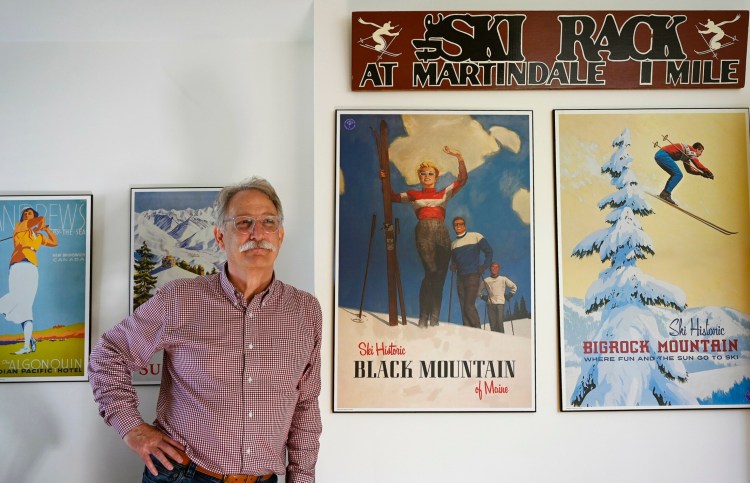Andy Shepard, whose vision of re-establishing skiing as a lifestyle in Aroostook County led to the establishment of two world-class Nordic facilities, will step down as chief executive officer of the Outdoor Sport Institute on July 1.

Andy Shepard said he is looking for a new opportunity to address the challenges facing the state’s rural communities. John Patriquin/File photo
The Outdoor Sport Institute evolved from the Maine Winter Sports Center, which Shepard founded 20 years ago with significant financial help from the Libra Foundation. When the foundation discontinued funding five years ago, Shepard changed the business model and established the Outdoor Sport Institute, a nonprofit organization focused on strengthening rural communities through sport and outdoor exploration.
“I didn’t want to step away until I felt OSI was on a trajectory for sustainability,” said Shepard, who turns 62 this month. “I finally felt like were were there last winter.”
Taking over for Shepard at Outdoor Sport Institute will be Mike Smith, the chief operating officer, who has been with the organization since 2009.
Shepard, who lives in South Freeport, said he is not retiring. Rather, he is looking for a new opportunity to address the challenges facing the state’s rural communities.
“I think we can all acknowledge there’s an awful lot of work to be done in Maine,” Shepard said, “and I’d love to a part of that.”
Shepard’s early successes included establishing biathlon ranges and Nordic ski lodges in Fort Kent and Presque Isle, both subsequently used in international competitions. In the past few years, he has focused on Millinocket, Skowhegan, Greenville and trying to re-open the Saddleback ski area in the Rangeley region. Big Rock in Mars Hill and Black Mountain of Rumford are two smaller ski areas saved from closure by Maine Winter Sports Center and eventually deeded back to their local communities.
In 2017, the Outdoor Sport Institute began working closely with the University of Southern Maine’s Data Innovation Project to develop a model that addresses the root causes of a culture where screen time appears more appealing than time spent outdoors. An effort to integrate outdoor opportunities into the community was launched in Millinocket last summer and in Skowhegan this spring.
Brian Hamel, a businessman from just outside of Presque Isle, was a Maine Winter Sports Center board member for 15 years and met Shepard through Hamel’s role in redeveloping the former Loring Air Force Base in Limestone.
“He’s just been incredibly visionary in his thinking,” Hamel said of Shepard. “His passion really came through when he spoke to the people of Aroostook County. You had to prove yourself and build trust with the community and that’s what he did.”
Hamel cited trail systems created by the Maine Winter Sports Center at elementary and middle schools in Aroostook County. He noted how a kid from rural Stockholm named Russell Currier rose from, in his father’s words, “a couch potato, a kid who liked video games and junk food and had no ambition,” to become an honor student and a two-time Olympic biathlete.
“People in rural Maine,” Hamel said, “owe a great deal of gratitude to Andy for his stick-to-it-iveness and his vision.”
Max Cobb, the president and CEO of U.S. Biathlon – headquartered at Pineland Farms in New Gloucester – looks back on four World Cups, two Junior World Championships and “probably a dozen national-level events” held in Aroostook County and marvels at the impact Shepard made not only in the state but across the nation.
“That example really inspired a new level of support in clubs and programs across the country,” Cobb said. “By the Maine Winter Sports Center being able to find a way to support athletes and put on events, that really set the new standard. Once somebody’s done it somewhere, it’s a lot easier to go and talk about doing it in another place.”
Send questions/comments to the editors.




Comments are no longer available on this story